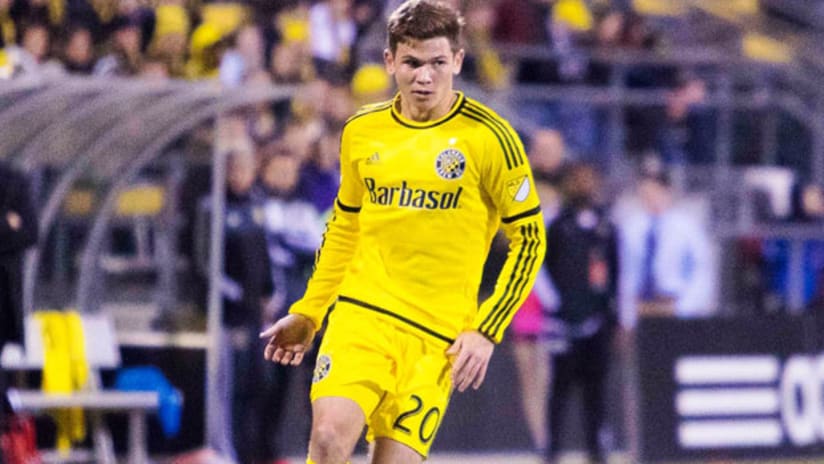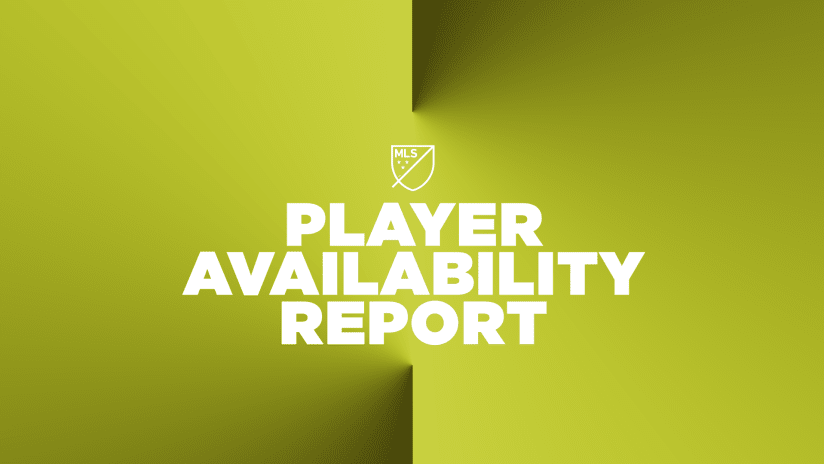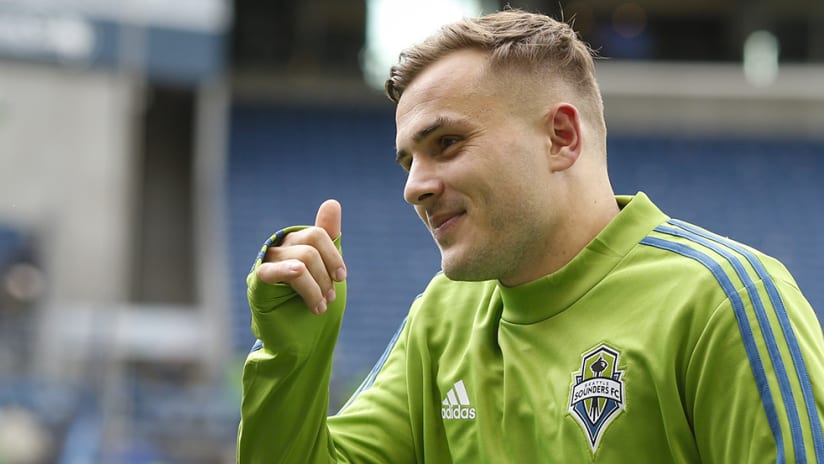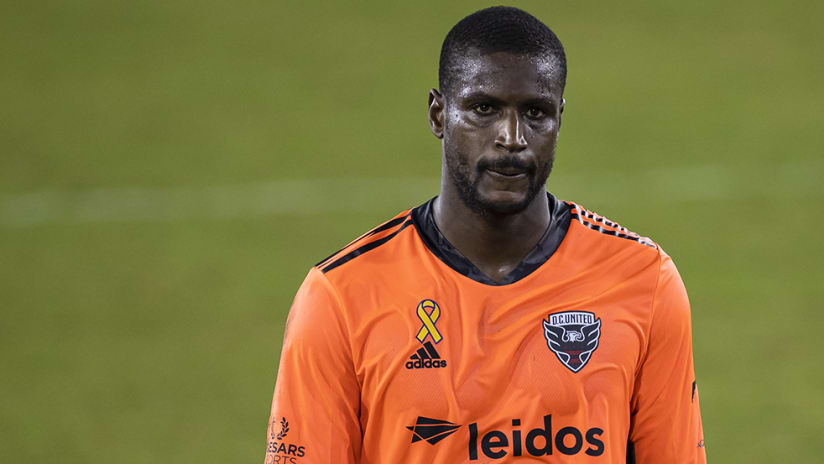OBETZ, Ohio – After nearly three months away from the game, Wil Trapp is back for Columbus Crew SC.
The Homegrown midfielder suffered a concussion in training during the week of March 16 that eventually resulted in 13 straight missed matches. Trapp made his return Tuesday in the club’s US Open Cup match at Orlando City SC, coming on as a second-half substitute for his first appearance since April 8.
“It was amazing; there’s nothing like playing soccer,” a smiling Trapp told reporters at Thursday’s training session. “You appreciate it a lot more when you’ve been out for a while.”
But while the club’s vice-captain is all smiles now, it’s been a long and difficult road to recovery.
After going through the standard testing and even some precautionary rest, Trapp was cleared to play in the club’s road match against the Vancouver Whitecaps on April 8. He played 45 minutes before he told coaches he couldn’t continue.
From there, he saw specialists in Rhode Island and Ohio and went through a variety of treatments. But his outlook remained cloudy, and Trapp says the first portion of his absence was the most difficult.
“At first it was probably a little more difficult, just because you’re mentally not accustomed to that,” he said. “You don’t know how long the injury is going to last; you don’t know a lot of things.
“But over time, you just start to come to terms with your perspective of staying with the facts – you are getting better; you are going to be out there in some amount of time – but staying diligent in the rehab and knowing that you can learn, always, and not trying to sulk and feel bad for yourself.”
Crew SC head coach Gregg Berhalter said dealing with the injury has been “tough” but complimented Trapp’s handling of the situation.
“I think he’s dealt with it extremely well,” he said. “But it certainly hasn’t been easy, especially when it’s unknown. You don’t know when you’re going to improve; you don’t know what tomorrow brings. It’s challenging.
“When you sprain an ankle, there’s a definite timeframe. With a concussion, it’s different. But he was patient, and we were patient, and I think it was dealt with the right way.”
- Get more Crew SC news at ColumbusCrewSC.com
At one point, Trapp said, the thought occurred to him that he might never play again.
But with help from doctors and others – like former MLS striker and ESPN analyst Taylor Twellman, one of the most high-profile concussion treatment advocates in the sport – Trapp says he was able to stay in the right frame of mind.
“I think you always have a little bit of [concern] in the back of your mind, just because concussions are difficult injuries to predict and stay on top of,” he said. “So there was a little bit of that, but it quickly vanished. The coaching staff, the training staff, our team of doctors were fantastic in helping me stay positive and helping me get through it and back to where I am now.”
Trapp said he’d never been diagnosed with a concussion and had never been out as long as the head injury kept him off the field.
And after suffering his concussion, he said he had a lot of learning to do.
“Going into it, I was like a lot of people,” he said. “I just thought, ‘Oh, it’s a concussion, I’ll be back in a week.’ Obviously I wasn’t ready a week or two weeks later, even after being cleared. They’re fickle injuries. It’s really difficult to predict if the symptoms are gone and if that means you’re healthy.”
Now, he says he’s “fascinated” by concussions, and has actually enjoyed learning more about them.
“[You work on] your vestibular sense, your auditory sense and your visual sense to realign and make your neural pathways a little more efficient,” he said. “I know I’m saying that right now and you’re like, ‘What’s going on?’ Like I said, I learned a lot.”
While he’s in good spirits now, Trapp said he went through some dark spells. When he came off at halftime of the Vancouver game, he said he hit “the lowest point" of his entire injury stint.
“You think you’re back, and then something slaps you in the face and says, ‘You’re not even close,’” he said. “From there, there were the unknowns. … Where do I go from here? What’s the severity of the injury? Do I ever come back? That kind of stuff.
“But quickly, that subsides once you talk to some doctors. [Twellman] was a huge help in that as well, just realizing that it’s not the end of the world. When you’re in the dark tunnel, it’s hard to see the light when you’re in the midst of it.”













